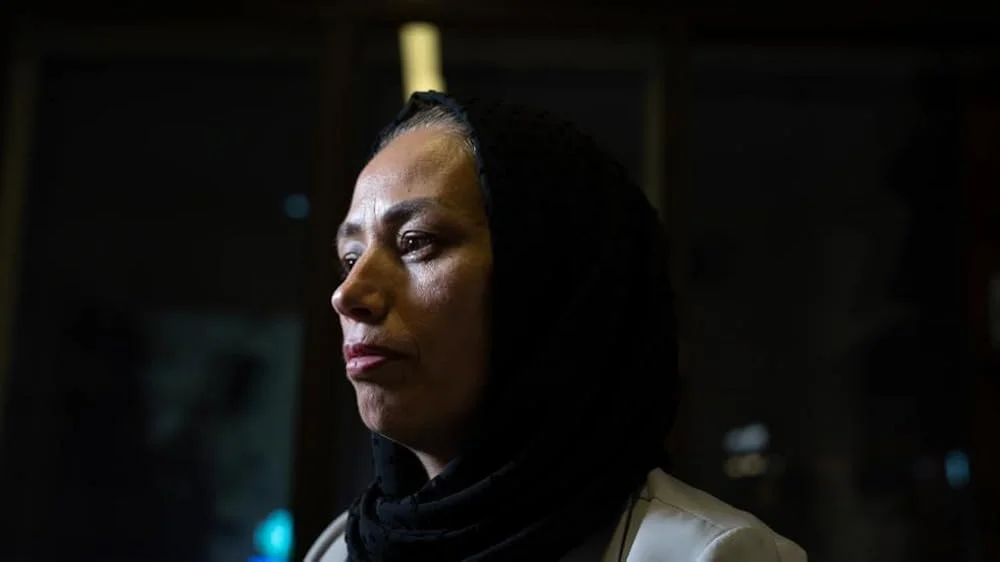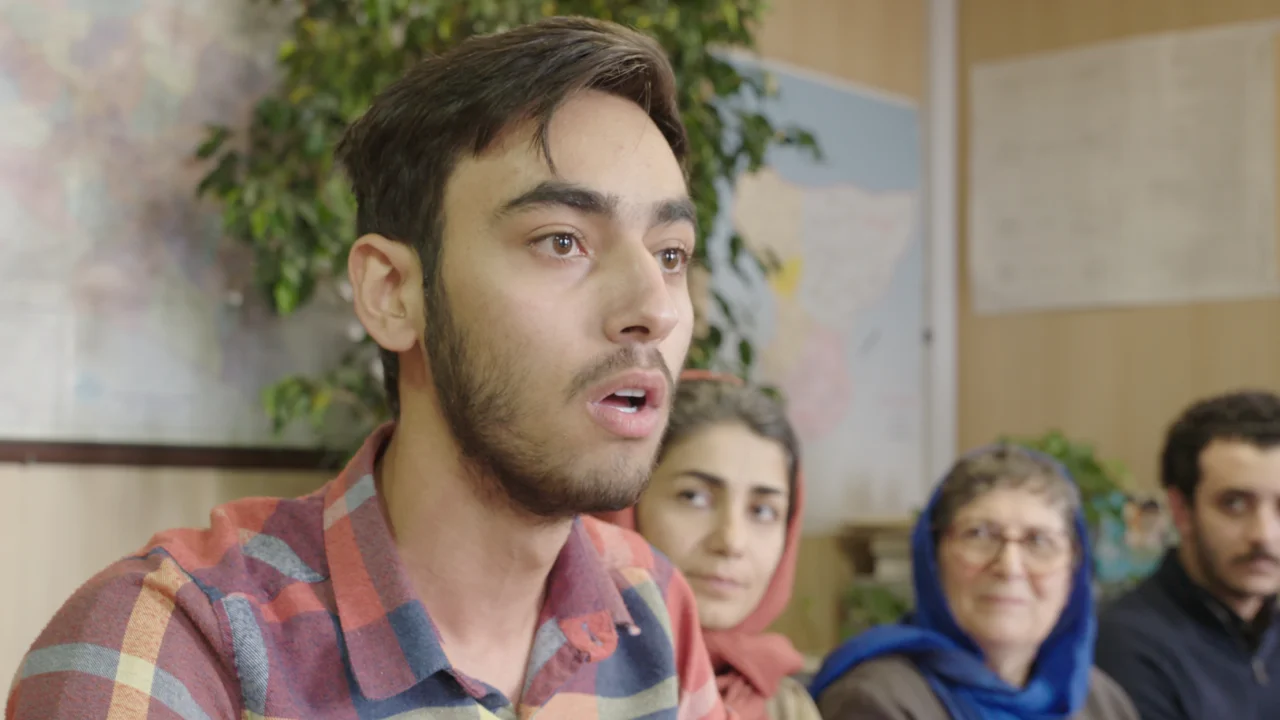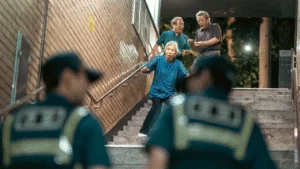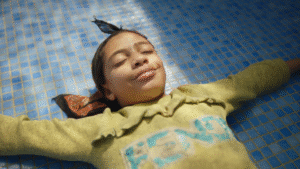
It is challenging to comment on any aspect of Iranian society today. With geopolitical tensions escalating, civilians remain stranded, caught between their hope for a democratic future and an Israeli intervention they never asked for. This review, which is about the law of their land, might not even reach them. In the Tehran-set documentary An Eye for an Eye, directors Tanaz Eshaghian and Farzad Jafari turn their lens on Tahereh, a woman convicted of murdering her husband, now fighting to avoid the death penalty by raising an enormous sum in blood money.
Tahereh committed the act in full view of her young son, Mohsen, and her elder daughters. While the co-accused remain offscreen – perhaps due to cultural conservatism or discomfort with the camera – Mohsen becomes the film’s emotional anchor. Fourteen years after the crime, Tahereh appears detached, even resigned. She has a noticeable amount of makeup on her face. She says she wouldn’t mind dying, not wanting to be a burden to her children. Mohsen, now in his volatile early youth, brims with nervous energy and frantically tries to save her life.
At its core, An Eye for an Eye lays bare a patriarchal legal system that offers no solace to women. The family dynamic is especially disturbing, with the victim’s nephew being the most vocal and aggressive. Whether driven by buried grief or raw greed, the system seems designed to empower men, often at the expense of fairness.

Legal proceedings in the film are led by human rights advocates and eventually, a celebrity. Mediation happens through intermediaries, but the exchanges between both families are riveting. In a society where the law operates under the shadow of religion, justice feels arbitrary and uneven. The film creates space for both sides to speak, but it’s impossible to ignore the outdated, male-centric framework of the Iranian legal system.
Stripped of its legal specifics, this could be anyone’s story, from America to Russia to Japan. The normalization of domestic violence in supposedly sacred family units makes it hard to argue for leniency when victims snap. Still, the insistence on death over rehabilitation, the concept of blood money as justice, and the refusal to reform outdated laws make Iran a harsh and unforgiving place for women.
An Eye for an Eye is as gripping as any thriller. The Tribeca-bound documentary holds you in suspense, refusing to reveal its outcome until the very end. With charged camerawork, raw emotion, and brisk editing, Eshaghian and Jafari inject urgency into a story that could have easily drowned in despair. In a country where both women and minorities are systemically silenced, one wonders if the time has finally come for a reckoning.
Rating: ★★★ 1/2

